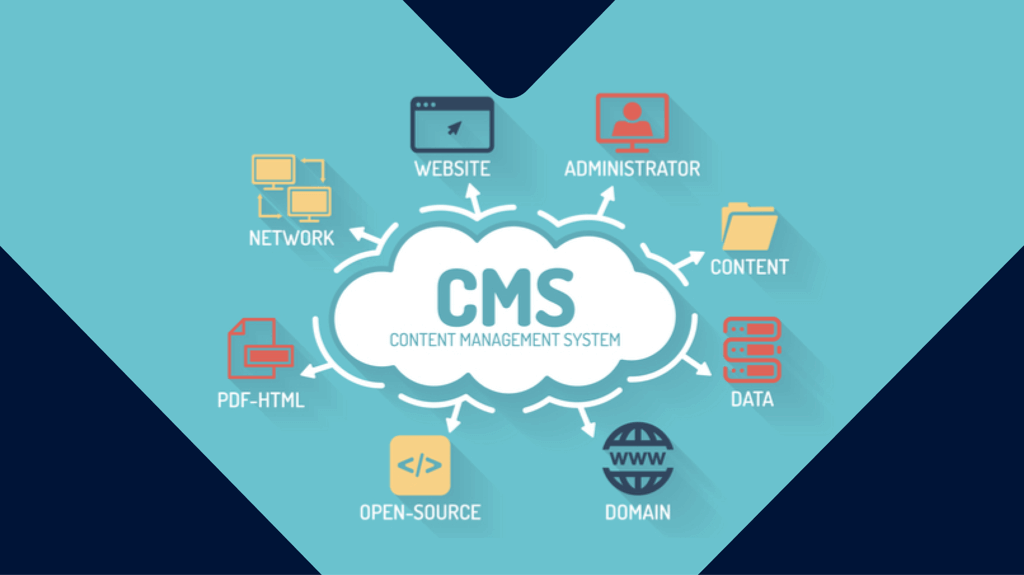Why CMS Software Still Matters in 2025
Content management systems (CMS) remain at the heart of modern website development. In Germany, the demand for CMS Software Deutsch—content management tools built with or for the German-speaking market—has never been stronger. As more businesses digitalize and seek independence from proprietary systems, open source CMS solutions offer flexibility, control, and local language support.
But with dozens of CMS options available, how do you know which one is right for your needs in 2025?
1. WordPress: Global Giant with German Support
Overview
WordPress continues to dominate the global CMS landscape, powering over 40% of all websites. It’s fully translated into German and offers thousands of themes and plugins.
Why It’s Great for Germany
-
Large German community support
-
Extensive plugin ecosystem for Datenschutz (privacy) and DSGVO compliance
-
Gutenberg editor supports flexible content creation
Ideal For
Blogs, small businesses, and content-heavy sites
SEO Edge
Native SEO plugins like RankMath and Yoast are available in German, improving content optimization for local search.
2. TYPO3: Enterprise-Ready and Built in Germany
Overview
Originally developed in Denmark but massively adopted in Germany, TYPO3 is tailored for enterprise needs and offers multilingual support, including full German language integration.
Key Features
-
Structured backend is ideal for larger teams
-
Strong versioning and workflow management
-
GDPR-compliant by design
Ideal For
Corporations, universities, and public institutions
Local Bonus
TYPO3 is backed by a German-speaking core community and offers LTS (Long-Term Support) versions for stability.
3. Contao: Sleek, Secure & German Engineered
Overview
Contao is a lesser-known CMS that was created in Germany and designed with accessibility, speed, and security in mind.
Why Choose Contao
-
Lightweight and fast
-
Integrated rights management system
-
SEO-ready and mobile-optimized themes
Use Cases
Ideal for small to medium-sized businesses and nonprofits looking for a secure German-native CMS.
4. Joomla: Powerful Multilingual Capabilities
Overview
Though Joomla originated internationally, its German localization and support community are thriving. It’s perfect for complex sites with layered structures.
Key Advantages
-
Native multilingual support
-
Advanced user and permission management
-
German language packs are readily available
Best Fit For
Membership sites, intranets, and online communities
SEO Factor
Joomla’s flexibility with structured data and custom metadata fields makes it a strong contender for local SEO in Germany.
5. Drupal: Technical Powerhouse with German Modules
Overview
Drupal is a developer-friendly CMS best known for its robustness and flexibility. It includes comprehensive translation features and multiple German-specific modules.
Core Features
-
Granular access controls
-
API-first architecture
-
Multilingual workflows
Recommended For
Government portals, fintech, and high-security websites
Pro Tip
While more complex, Drupal’s performance and security are ideal for high-stakes German enterprises.
6. Grav: Flat-File CMS with German Simplicity
Overview
Grav is a modern flat-file CMS that doesn’t rely on databases, making it lightning-fast and extremely lightweight.
Unique Traits
-
Markdown-based content creation
-
German documentation available
-
Minimal setup with high performance
Use Cases
Portfolio websites, technical blogs, and lightweight landing pages
SEO Benefit
Fast load times improve Core Web Vitals, impacting local search rankings positively on Google.de.
7. ProcessWire: Developer-Friendly and German-Adaptable
Overview
ProcessWire is a CMS and CMF (Content Management Framework) that offers complete control over templates and fields.
What Makes It Stand Out
-
Clean admin interface
-
Full German translation
-
REST API support
Perfect For
Agencies, developers, and advanced users in Germany
Localization
The German ProcessWire community actively maintains language packs and best practices for German websites.
How to Choose the Right CMS Software Deutsch in 2025?
Choosing a CMS depends on your project type, technical capacity, and long-term goals. Here’s a quick breakdown to help guide your decision:
| CMS | Best For | German Support | Ease of Use | SEO Capabilities |
|---|---|---|---|---|
| WordPress | General purpose | ✅✅✅ | ✅✅✅ | ✅✅✅ |
| TYPO3 | Enterprises | ✅✅✅✅ | ✅✅ | ✅✅✅ |
| Contao | Small businesses | ✅✅✅✅ | ✅✅✅ | ✅✅✅ |
| Joomla | Complex sites | ✅✅✅ | ✅✅ | ✅✅✅ |
| Drupal | Security-focused | ✅✅✅✅ | ✅ | ✅✅✅✅ |
| Grav | Speed lovers | ✅✅ | ✅✅✅✅ | ✅✅✅✅ |
| ProcessWire | Developers | ✅✅✅ | ✅✅ | ✅✅✅ |
CMS Trends in Germany: What’s Coming Next?
-
Stronger DSGVO Tools: Expect CMSs to integrate native consent management systems.
-
Headless CMS Expansion: Decoupled architectures will become more popular, even in small business sectors.
-
AI Integration: Open-source CMS tools are starting to integrate AI for content suggestions and layout generation, with localized models trained on German-language data.
-
Mobile-First Templates: CMS platforms are prioritizing mobile-first experiences, aligning with Germany’s smartphone usage trends.
Conclusion: Which CMS Software Deutsch Should You Use?
Whether you’re launching a blog in Berlin, building an e-commerce site in Hamburg, or maintaining a government portal in Munich, the CMS you choose must align with your digital goals and the expectations of German users.
Here’s a quick recommendation summary:
-
For simplicity: WordPress or Grav
-
For enterprise needs: TYPO3 or Drupal
-
For German-made reliability: Contao
-
For technical freedom: ProcessWire
In 2025, CMS Software Deutsch options are more powerful, localized, and user-friendly than ever. By choosing the right system, you not only future-proof your digital presence but also stay competitive in the evolving German digital landscape.
- CMS Software Deutsch: The Top 7 Open Source Systems 2025 Compared
- Compare the 7 leading CMS Software Deutsch solutions of 2025. Discover features, use cases, and the best picks for your website or business.
- cms software deutsch
Related posts:
 Machinery and Equipment Industry Email List: Unlocking Opportunities for B2B Marketing Success
Machinery and Equipment Industry Email List: Unlocking Opportunities for B2B Marketing Success
 Essentials Hoodie with Bold Logo – A Modern Streetwear Icon for Everyday Style”
Essentials Hoodie with Bold Logo – A Modern Streetwear Icon for Everyday Style”
 Why Investing in Charlotte SEO Is Crucial for Business Growth
Why Investing in Charlotte SEO Is Crucial for Business Growth
 The world of print on demand car wraps and discover how custom car wrap printing transforms vehicles into unique moving canvases.
The world of print on demand car wraps and discover how custom car wrap printing transforms vehicles into unique moving canvases.
 Enhance Your Digital Marketing Strategy with a Data-Driven Digital Marketing Agency
Enhance Your Digital Marketing Strategy with a Data-Driven Digital Marketing Agency
 ways to oversee living where you work ways to oversee living where you work
ways to oversee living where you work ways to oversee living where you work
 Retirement Arranging in Singapore: Retirement Arranging in Singapore:
Retirement Arranging in Singapore: Retirement Arranging in Singapore:
 Unlocking Growth with SEO Diensten: A Complete Guide for Dutch Businesses
Unlocking Growth with SEO Diensten: A Complete Guide for Dutch Businesses





